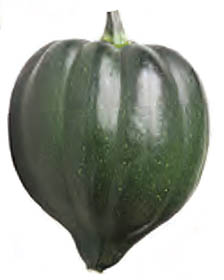

Acorn squash nutrition full#
This fiber-rich vegetable is full of many nutrients, with some of the most notable being magnesium, potassium, manganese, vitamin C, and iron. Summary Acorn squash is primarily a carbohydrate, though it does supply small amounts of protein too. That makes it a bit higher than butternut squash, another winter squash that supplies around 82 calories per cubed cup. Vitamin C Requirements and Best Dietary Sources Calories There are 115 calories in a one-cup serving of cubed acorn squash. Acorn squash also contains calcium, phosphorus, zinc, copper, selenium, and a few B vitamins. One cup provides a healthy dose of magnesium, potassium, manganese, vitamin C, and iron. Vitamins and Minerals When it comes to micronutrients, acorn squash has plenty to offer. This is about 5% of the Daily Value (DV) for those following a 2,000 calorie diet. Protein Though acorn squash isn’t a major source of protein, it does provide a small amount of this macronutrient at 2.3 grams per cup.

A majority of this fat is polyunsaturated (0.12 grams). Fats Acorn squash is naturally very low in fat, offering just 0.3 grams per 1-cup serving. While the USDA doesn’t offer a breakdown of the sugar or starch content of acorn squash, research suggests that these two forms of carbohydrate are responsible for between 50% and 70% of its water-free mass at the time it is harvested. Nearly one-third of these carbs (9 grams) are provided in the form of fiber. Calories: 115Fat: 0.3gSodium: 8.2mgCarbohydrates: 30gFiber: 9gSugars: No information providedProtein: 2.3gMagnesium: 88.2mgPotassium: 896mgManganese: 0.5mgVitamin C: 22mgIron: 1.9mg Carbs Most of the calories in acorn squash come from carbohydrates. The following acorn squash nutrition information has been provided by the USDA. Acorn squash is a great source of magnesium, potassium, manganese, vitamin C, and iron. Acorn Squash Nutrition Facts One cup of cubed acorn squash (205g) provides 115 calories, 2.3g of protein, 30g of carbohydrates, and 0.3g of fat. Many people especially enjoy its slightly nutty flavor and tender texture when cooked. Although acorn squash belongs to the same species as summer squash like zucchini and crookneck, it’s commonly known as a winter squash.


Its excellent nutrition profile includes plenty of fiber and a wide array of micronutrients.
Acorn squash nutrition how to#
Learn about our Medical Review Board Print Verywell / Alexandra Shytsman Table of Contents View All Table of Contents Nutrition Facts Health Benefits Allergies Adverse Effects Varieties When It’s Best Storage and Food Safety How to Prepare With its signature dreidel-like shape, bright orange flesh, and ribbed green exterior, acorn squash (Cucurbita pepo) is not hard to recognize. by Ayana Habtemariam, MSW, RDN, LDN Medically reviewed by Ayana Habtemariam, MSW, RDN, LDN Facebook Ayana Habtemariam, MSW, RDN, LDN, is a registered dietitian, nutrition therapist, certified intuitive eating counselor, and macro social worker. Content is reviewed before publication and upon substantial updates. Medical Reviewers confirm the content is thorough and accurate, reflecting the latest evidence-based research. Learn about our editorial process Updated on SeptemMedically reviewed Verywell Fit articles are reviewed by board-certified physicians and nutrition and exercise healthcare professionals. Nutrition Facts Fruit and Vegetables Acorn Squash Nutrition Facts and Health Benefits By Sarah Garone, NDTR Sarah Garone, NDTR Facebook LinkedIn Twitter Sarah Garone, NDTR, is a freelance health and wellness writer who runs a food blog.


 0 kommentar(er)
0 kommentar(er)
